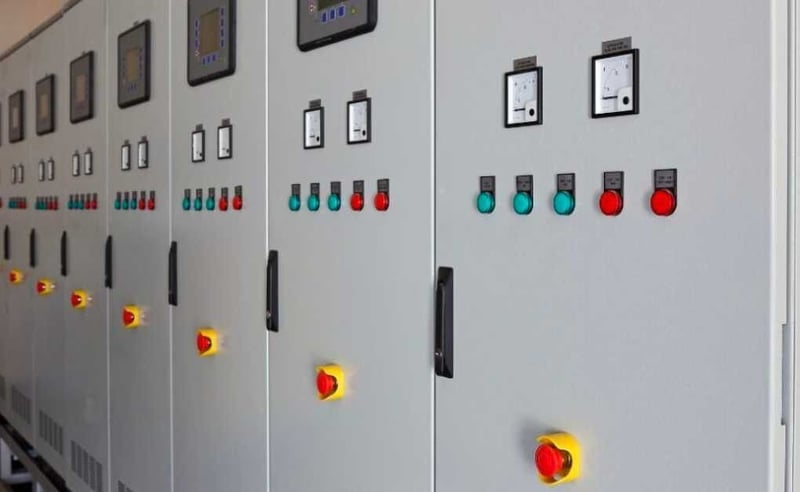The Indispensable Role of Electrical Distribution Boards in Industrial Settings
Written by: Josh Maraney Save to Instapaper
Electrical distribution boards (EDBs) are an integral part of any industrial setting. Often overlooked, these essential components of electrical infrastructure play a crucial role in managing and distributing electrical power efficiently and safely. This blog will delve into the role of electrical distribution boards in industrial settings, highlighting their significance and the benefits they offer.
An Overview of Electrical Distribution Boards
EDBs, also known as breaker panels, load centres, or panel boards, are critical elements of an electrical supply system. They take electricity from a single source and distribute it over different circuits to ensure a safe and efficient supply of electricity throughout an industrial complex. Typically, EDBs include safety devices like circuit breakers or fuses that trip or blow if an electrical fault is detected, thereby preventing potential electrical fires and protecting equipment from damage.
The Role of Electrical Distribution Boards in Industry
Centralized Control
One of the primary roles of EDBs in industrial settings is providing centralised control over the electrical supply. With multiple circuits running from a single board, it’s easier to manage and monitor the electrical usage throughout the facility. This centralised control also simplifies the process of isolating circuits during maintenance or in the event of a fault.
Safety and Protection
The presence of circuit breakers and fuses in an EDB offers essential protection against electrical faults. These safety devices are designed to disconnect the power supply to a particular circuit if an overload or short circuit occurs. This safety measure not only protects expensive and sensitive equipment from damage but also prevents potential fire hazards, contributing to overall industrial safety.
Energy Efficiency and Management
Modern EDBs can contribute significantly to energy efficiency in industrial settings. Many contemporary boards are equipped with features that allow for better energy management, including load balancing capabilities and the provision for integrating with energy management systems. This feature is particularly beneficial in industries where energy usage is high, helping to reduce operational costs and promote sustainability.
Flexibility and Scalability
Industrial settings often require changes and modifications as processes evolve and grow. Electrical distribution boards offer a certain degree of flexibility and scalability to meet these changes. Extra circuits can be added to an existing board, or boards can be upgraded to handle increased power loads. This adaptability makes EDBs particularly valuable in dynamic industrial environments.
The Bottom Line
In conclusion, the role of electrical distribution boards in industrial settings cannot be overstated. They provide centralised control, ensure safety and protection against electrical faults, and can significantly contribute to energy efficiency and management. Moreover, their flexibility makes them suitable for evolving industrial needs. Therefore, when planning and implementing electrical infrastructure in an industrial setting, it’s crucial to give due attention to the selection, installation, and maintenance of high-quality EDBs. They not only power today’s industries but also help shape a safe and efficient industrial future. Visit Electrical Board Manufacturers (Pty) Ltd for more info.
Get new press articles by email
Top Click is one of South Africa’s leading full-service digital marketing agencies. Our custom-built, cutting-edge solutions are targeted to help you attract customers, convert leads and grow your business. From SEO and Google Ads to social media marketing and digital design, our measurable marketing campaigns deliver results – and ensure that, in a cluttered online marketplace, you rise... Read More
Latest from
- Choosing the Right Pet Food for Your Animals
- Managing Contracts With Simpler Tools
- New Website to Keep Up with the Demand for Online Pet Food Delivery in South Africa
- Machines That Make Packaging Easier
- The Role of Transit Solutions in Modern Connectivity
- How to Get Cheaper Car Insurance Without the Stress
- Making Radiology Workflows Simpler with the Right Tools
- Reduce Late Payments with These Practical Tips
- A Simple Guide to Choosing the Right Forklift for Your Business
- Keeping Your Car in Good Shape with the Right Services
- Why Property and Asset Valuations Matter
- Finding Quality Engines and Scrap Yard Services
- Practical Guide to Rooftop Tents
- Practical Uses of Vehicle Awnings
- A Look at Engine Choices Across Popular Car Brands
The Pulse Latest Articles
- Education Is The Frontline Of Inequality, Business Must Show Up (December 11, 2025)
- When The Purple Profile Pictures Fade, The Real Work Begins (December 11, 2025)
- Dear Santa, Please Skip The Socks This Year (December 10, 2025)
- Brandtech+ Has 100 Global Creative Roles For South African Talent (December 9, 2025)
- The Woman Behind Bertie: Michelle’s Journey To Cape Town’s Beloved Mobile Café (December 9, 2025)
